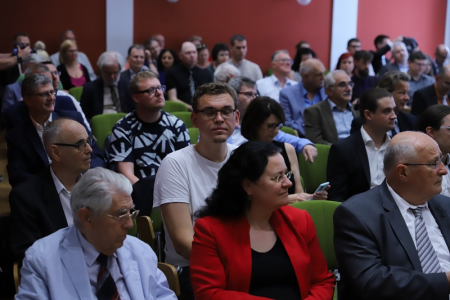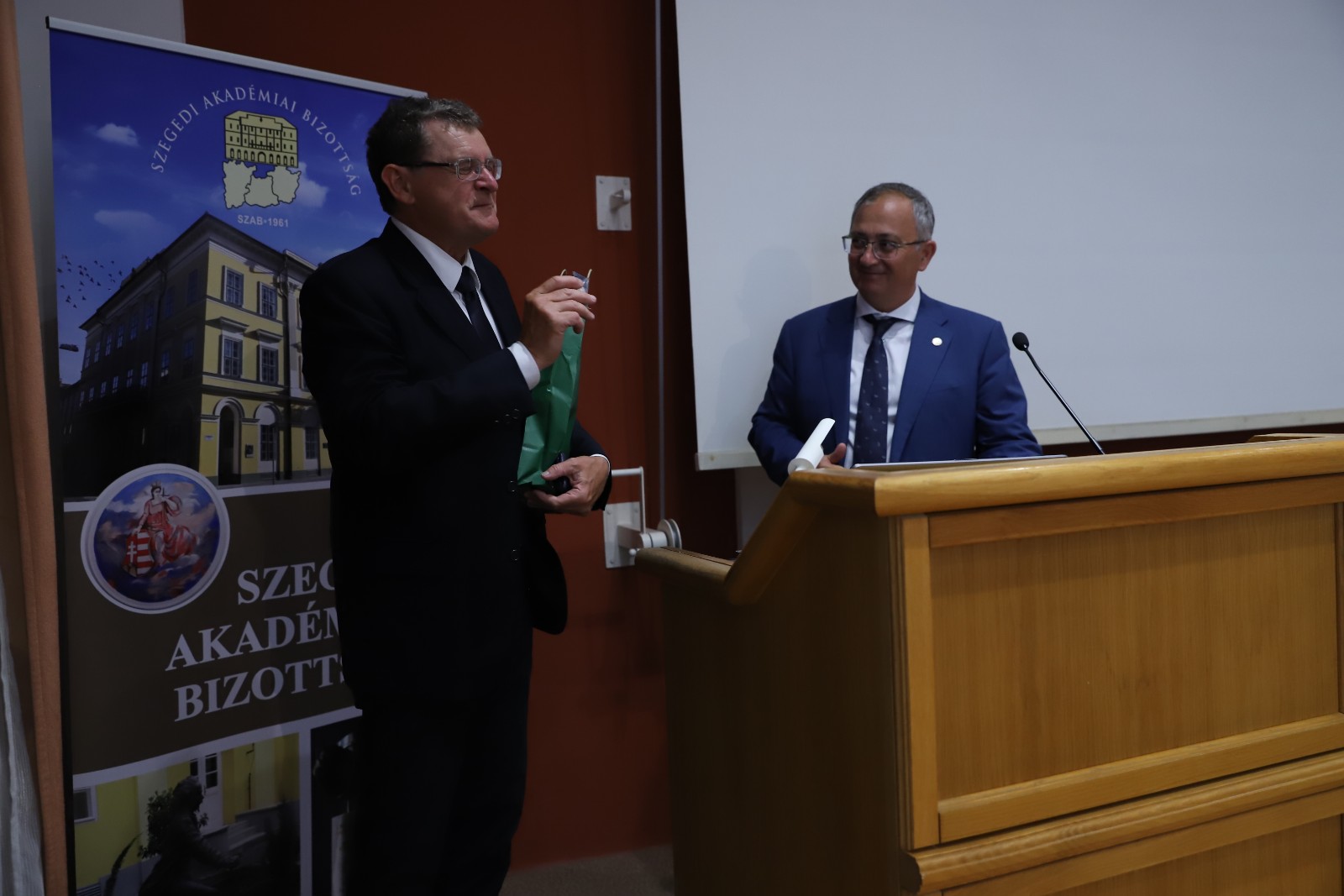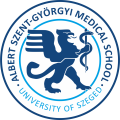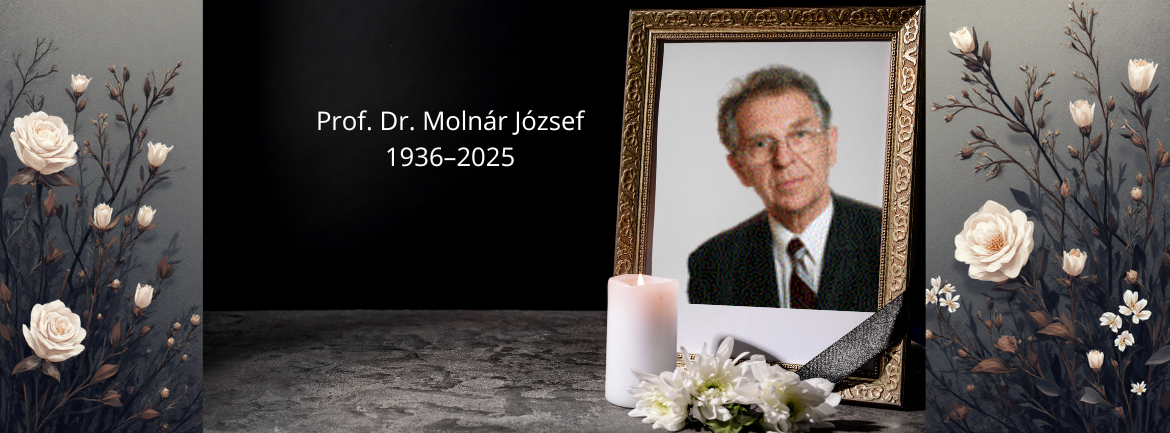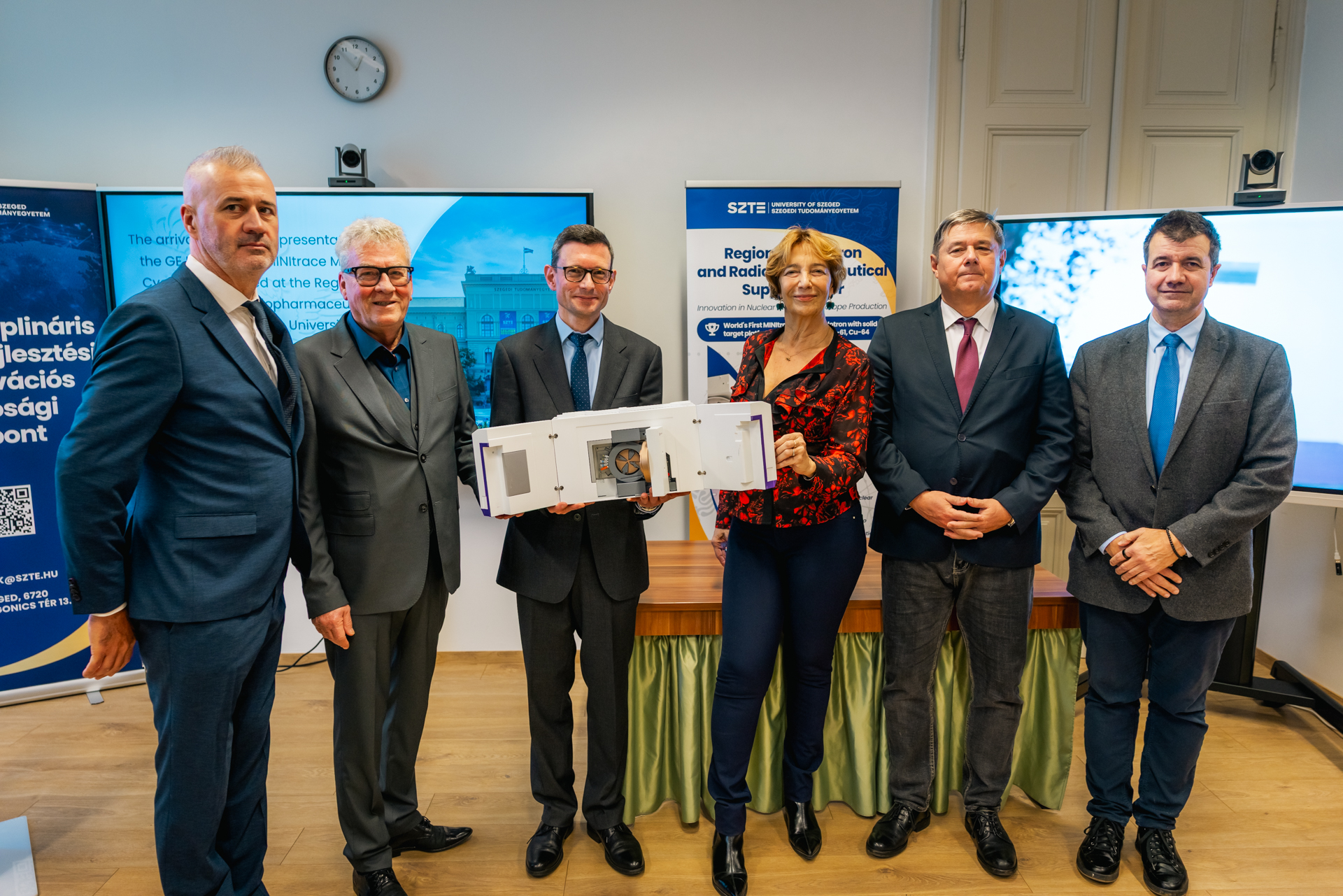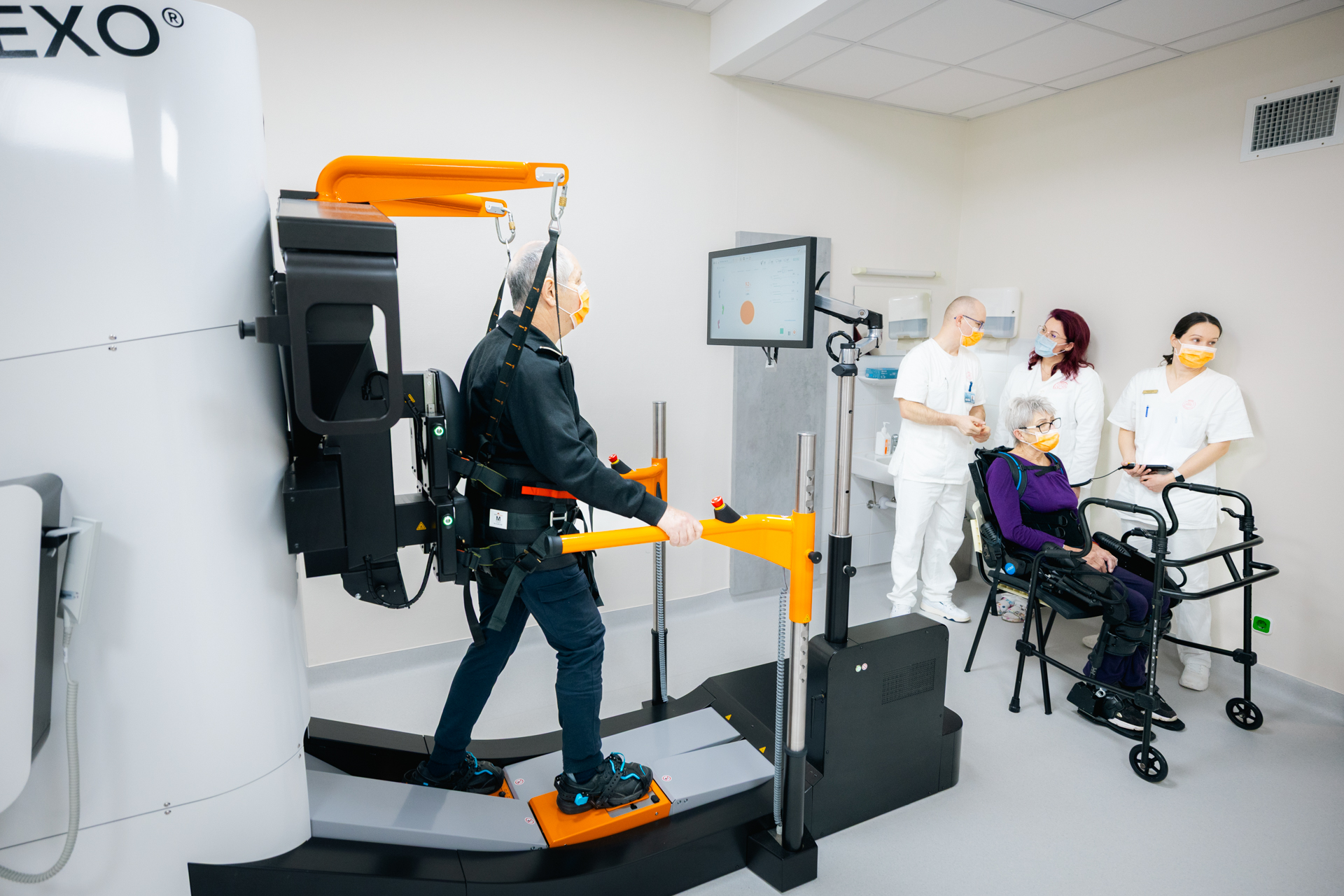2023. June 06.
A scientific meeting was held at the beginning of June to celebrate the 25th anniversary of Prof. Mihály Boros as Head of Department at the Institute of Surgical Research.
At the event, the educational activities, scientific research results and international relations of the Institute were presented by the staff of the Institute and distinguished speakers from abroad.
In her welcome speech, Prof. Dr. Márta Széll, Vice Rector for Strategic Planning of the University of Szeged, emphasized that the Institute of Surgical Research is one of the most outstanding scientific units of the university and the Faculty of Medicine, cooperating with a wide range of international partners. She also added that Mihály Boros is leading the Institute at a time when it is facing many challenges and innovations, as for instance skills training has become established in Hungary in the past 10-15 years.
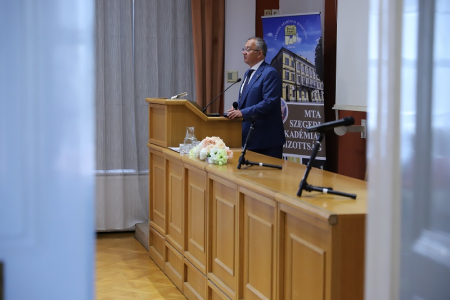
Regarding the educational activities of the Institute of Surgical Research, we learned that the Institute plays a significant role in both undergraduate, residency and postgraduate training by teaching basic surgical, medical, emergency care, microsurgical, laparoscopic and minimally invasive surgical techniques, among others. The institute also provides teaching activities for animal experimentation (FELASA) courses. It also boasts a strong record of scientific achievements, with hundreds of journal articles, abstracts, conference papers and books in Hungarian, English and German.
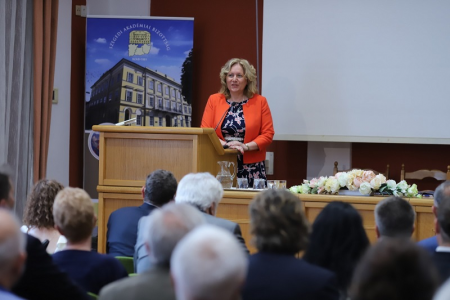
The event also included a summary of the past 10 years of the activities of the Skills Centre, which Prof. Mihály Boros has also helped to create, establish and run. The centre was opened 10 years ago in the former student club. The teaching facilities of the unit were state-of-the-art at that time, with computer-controlled flexible endoscopy systems, high-fidelity adult and paediatric patient simulators, in addition to traditional infrastructure for the practical educational background of internal medicine, emergency medicine and nursing. This unit is still almost unchanged today, with emergency medicine as its main profile. In 2018, another unit of the Centre was opened in the former Szeged City hospital, where the educational palette was developed further, in line with the international trends. Two fully-equipped surgical operating theatres, with adjoining scrubbing and dressing rooms and several other practice rooms have been set up in addition to general surgery facilities for gynaecology, anaesthesiology, intensive care, nursing and urology, diagnostic and imaging units. A high-level IT background, data recording and audio-visual systems are also available.
